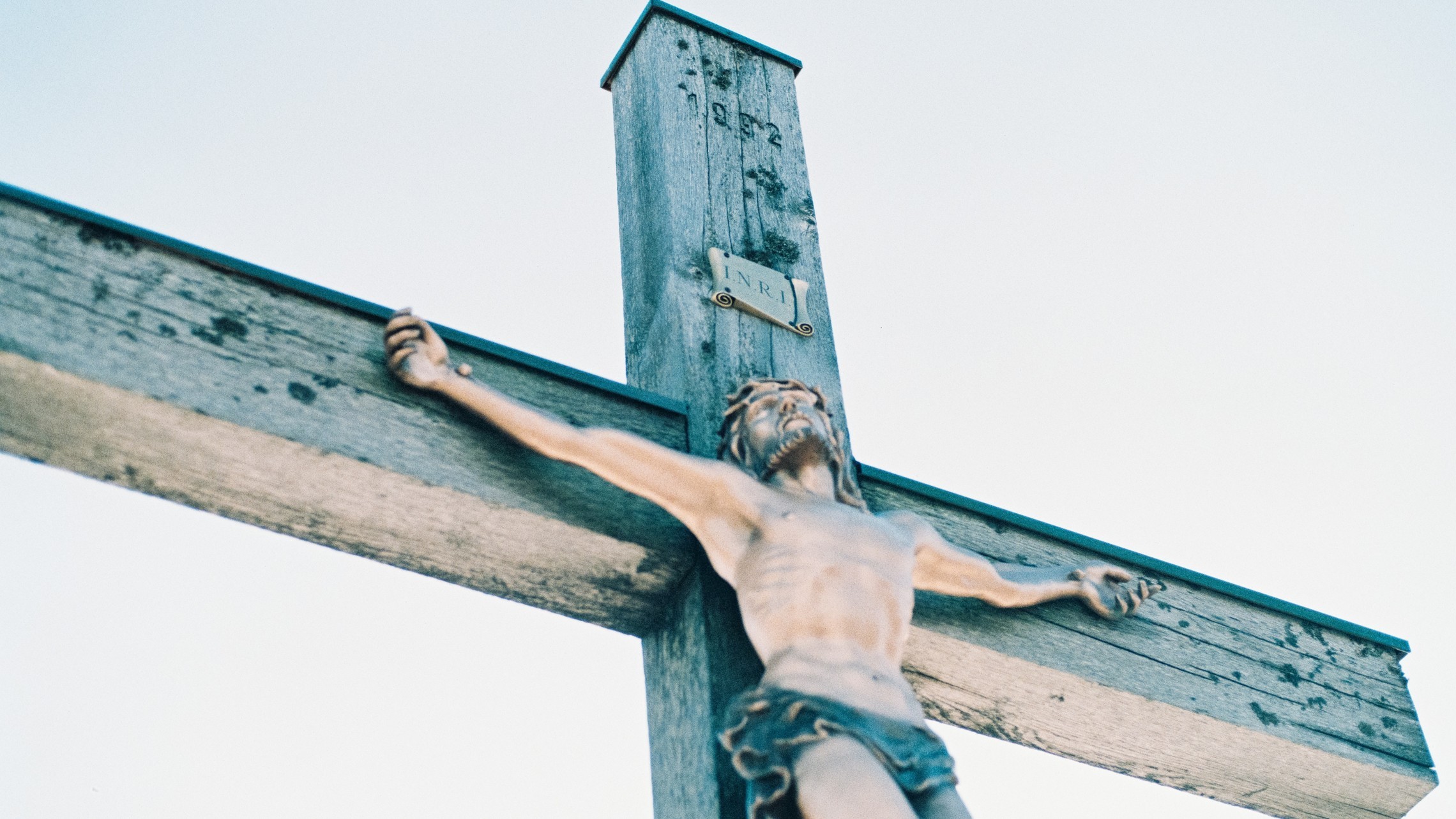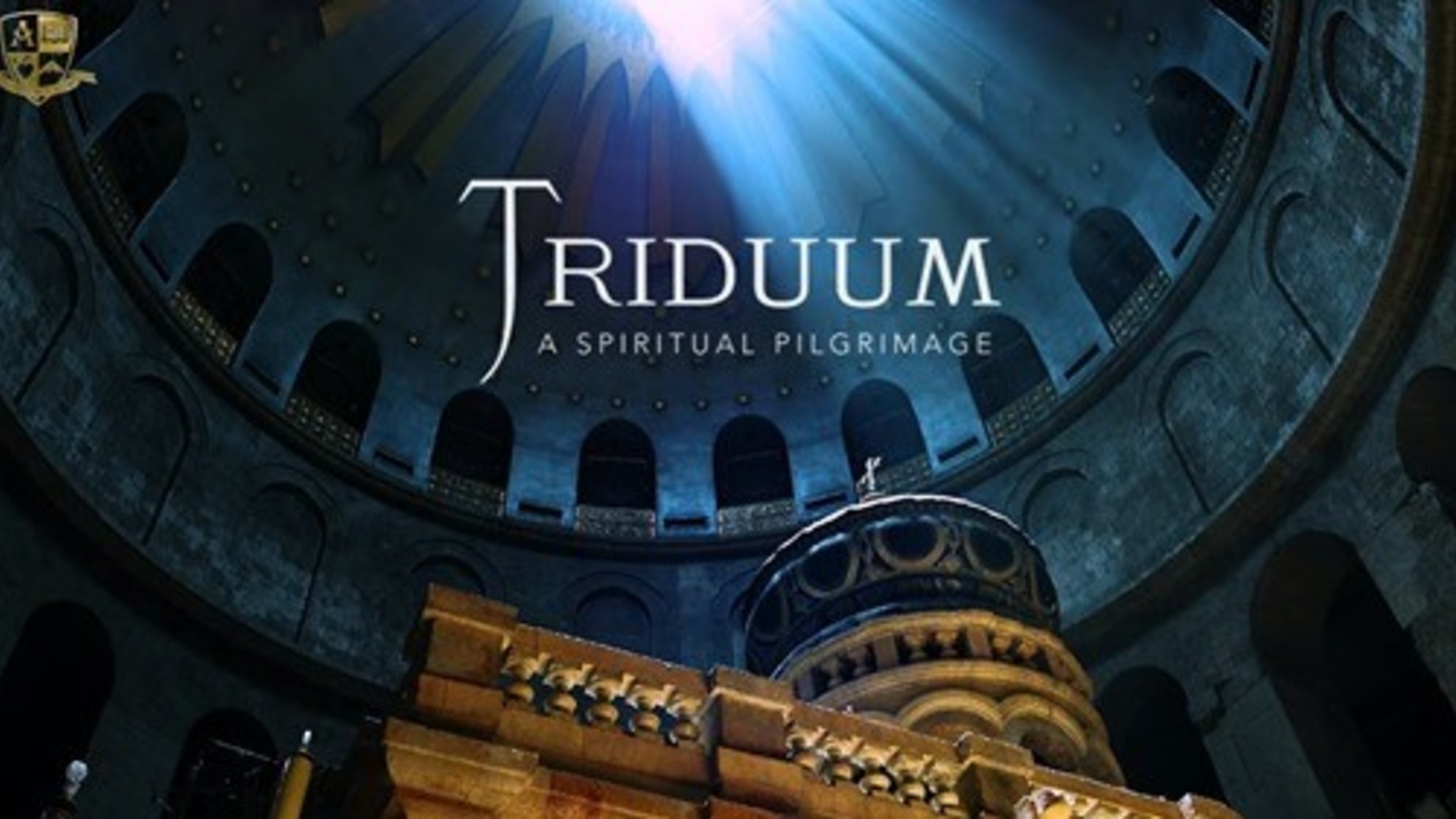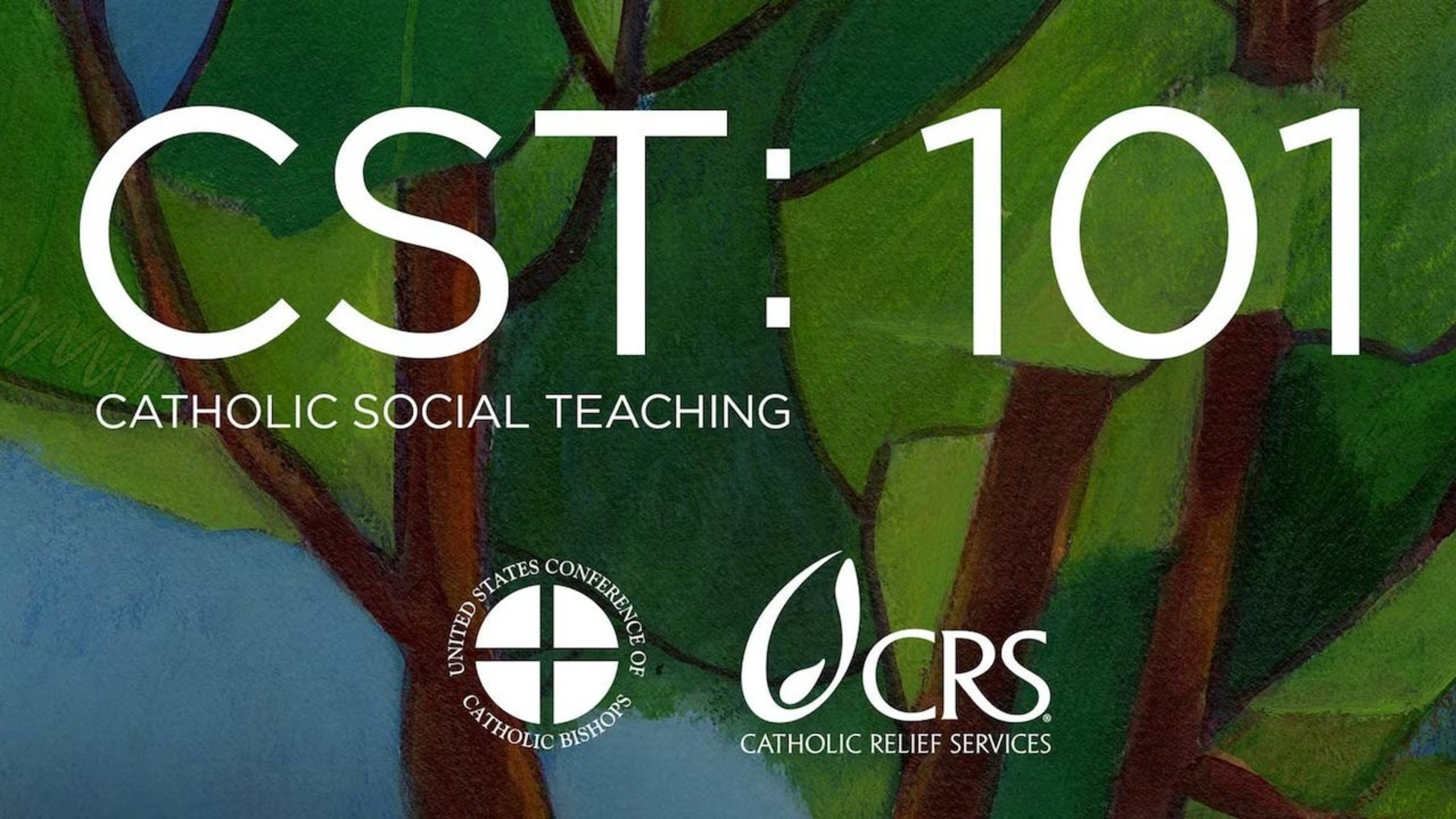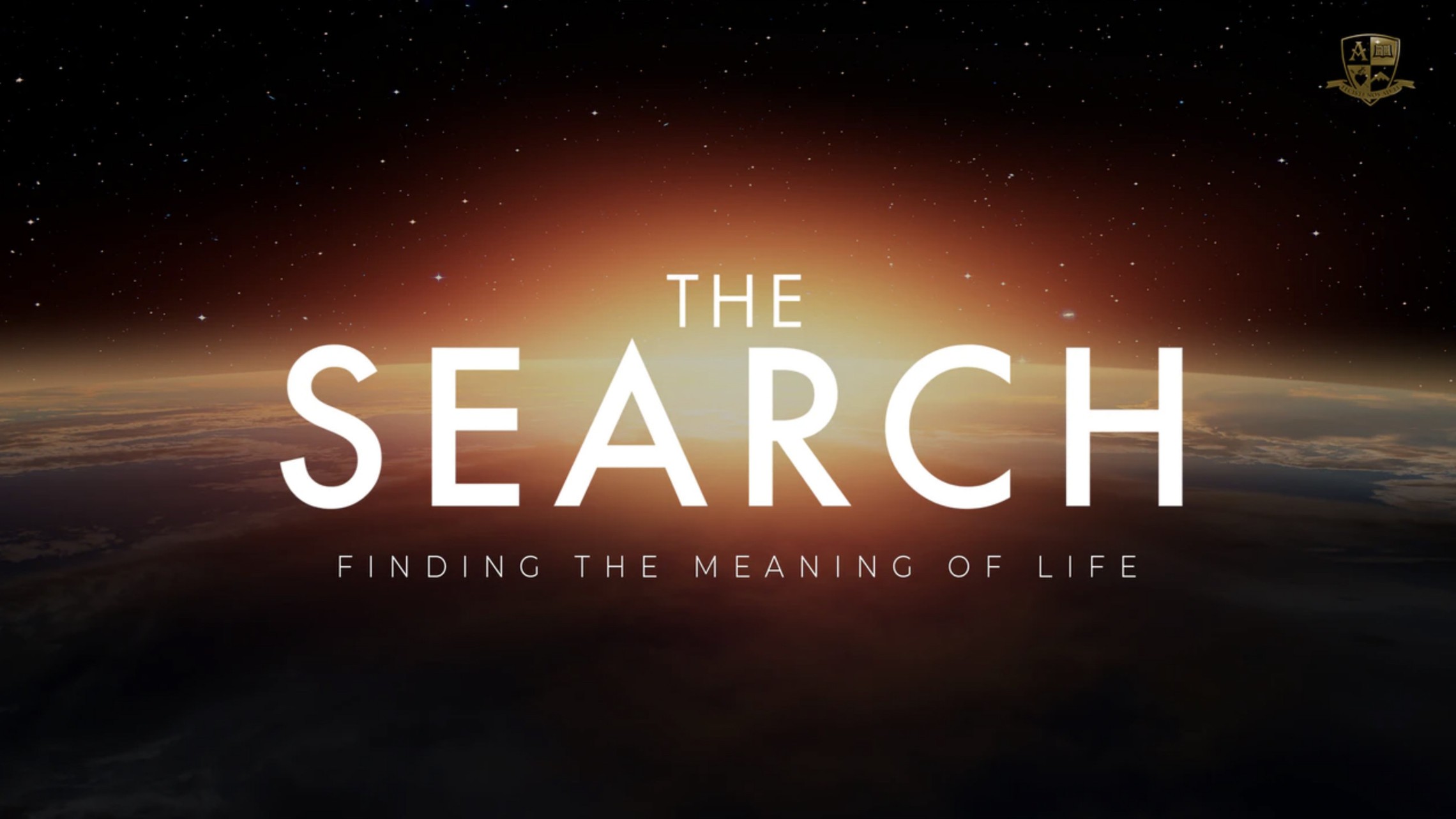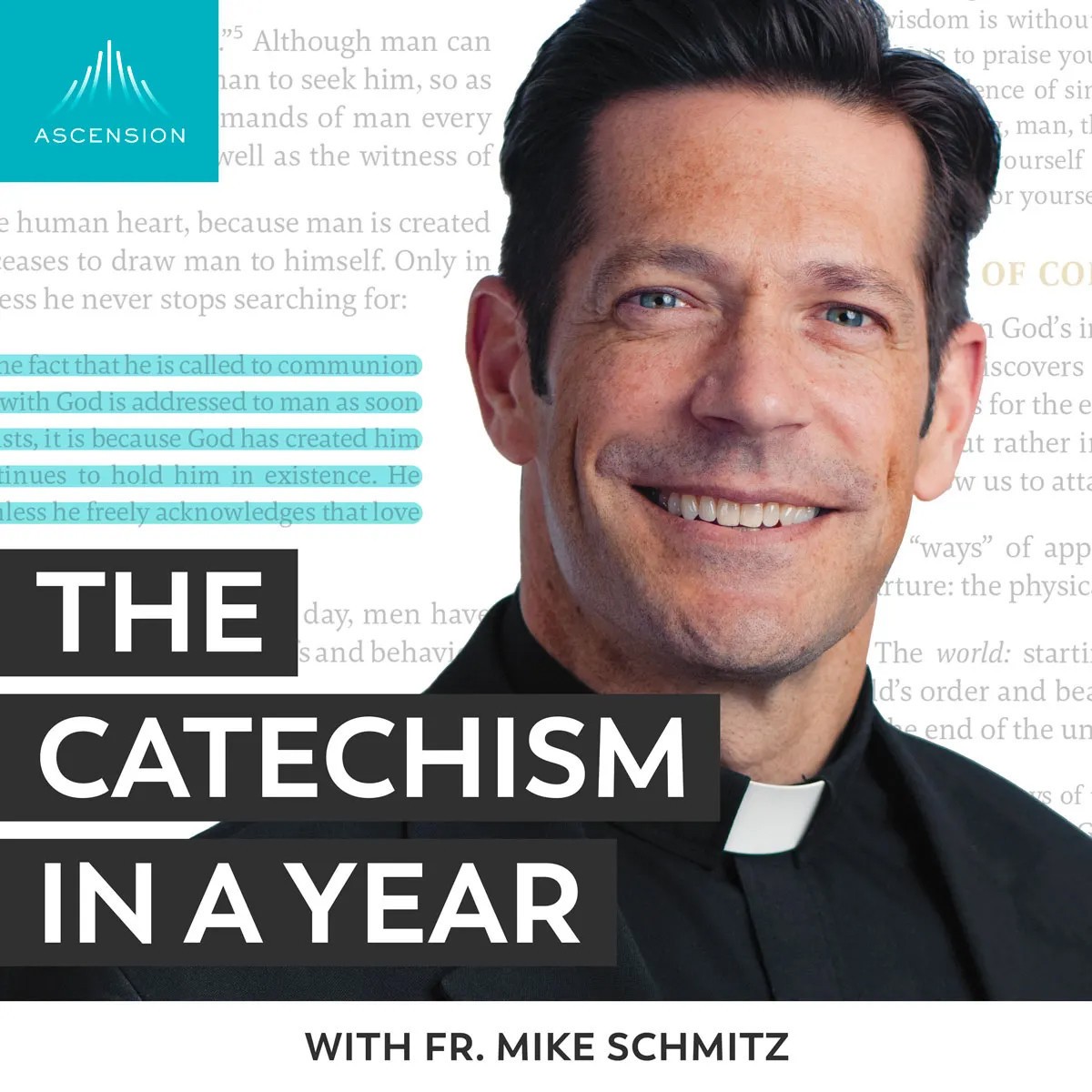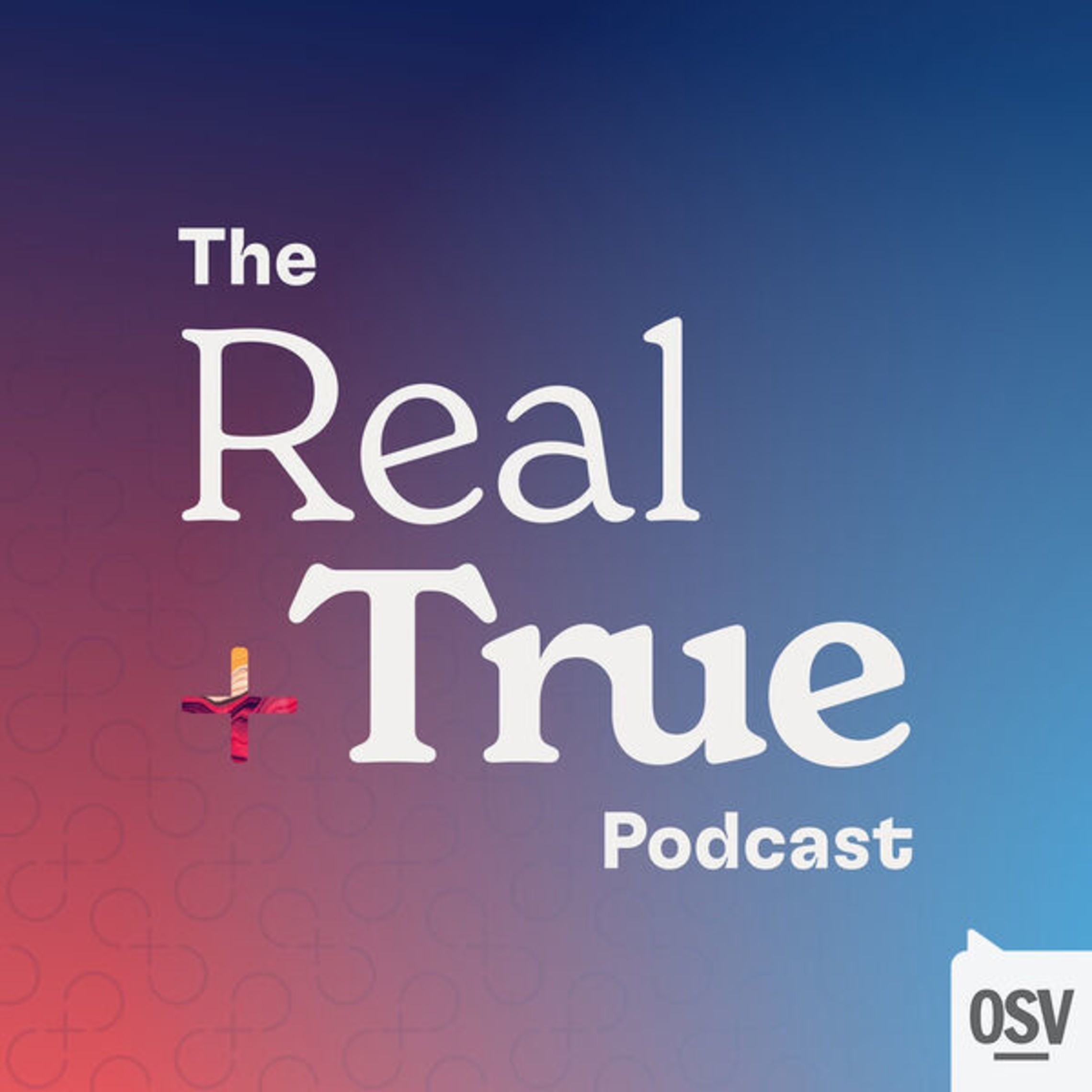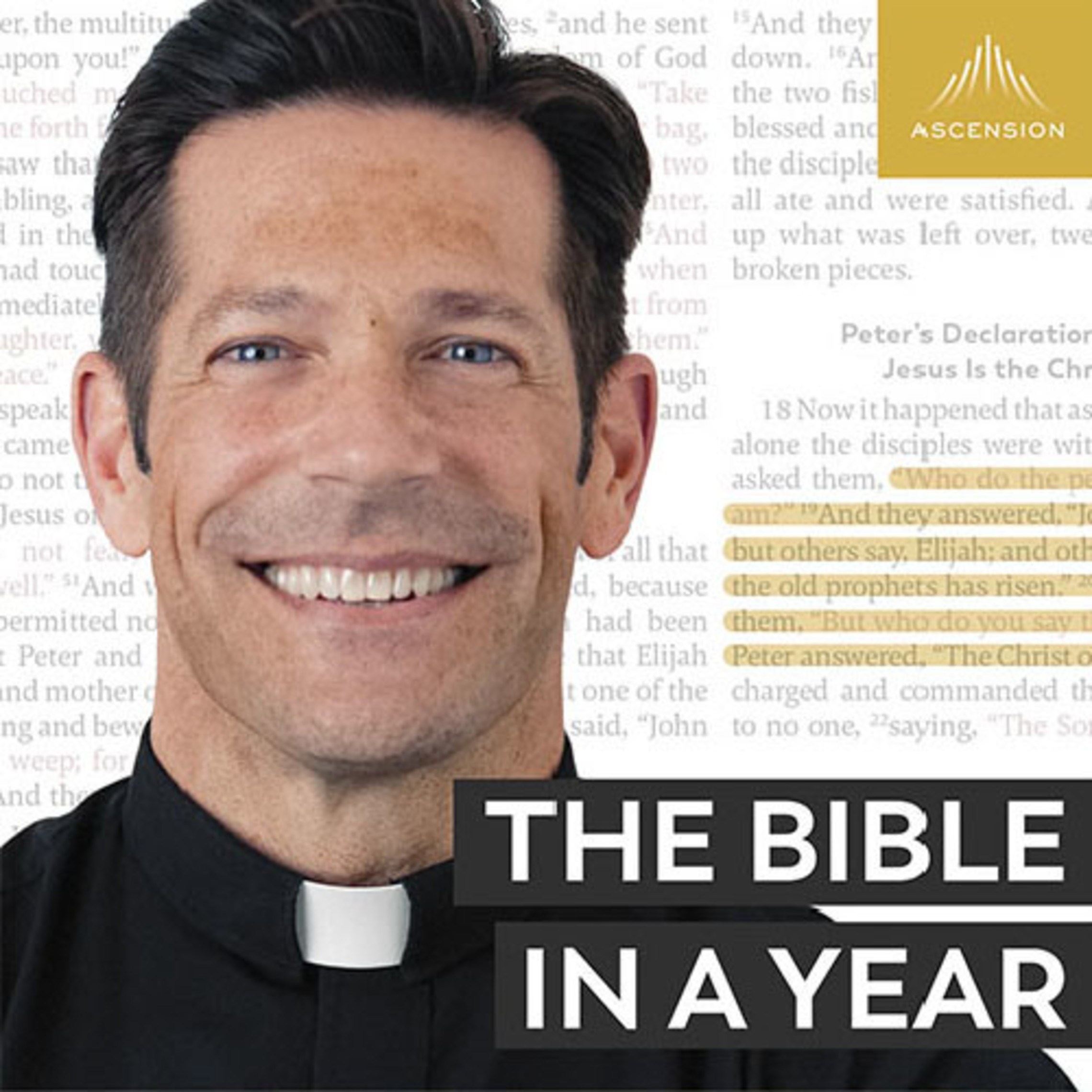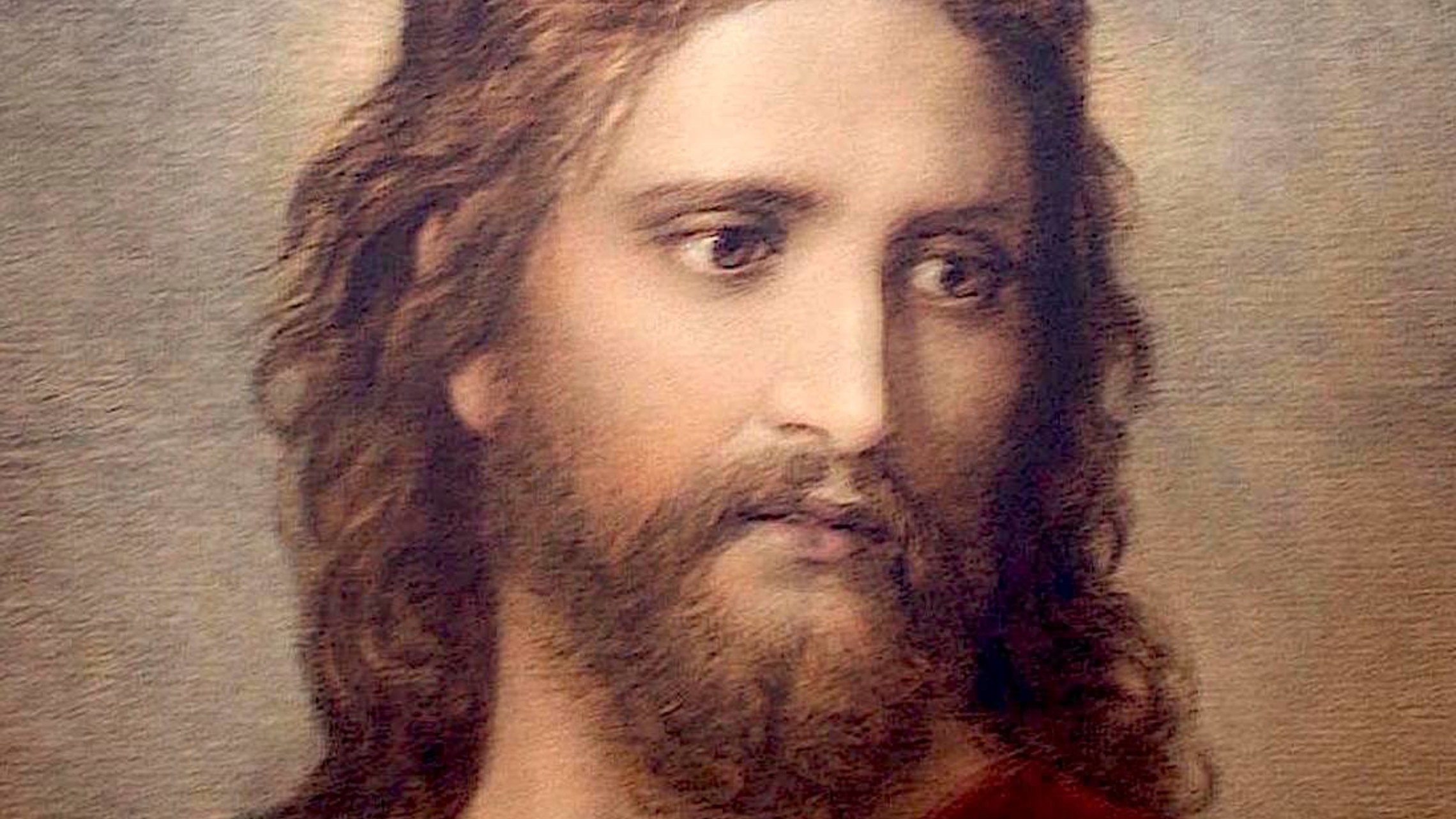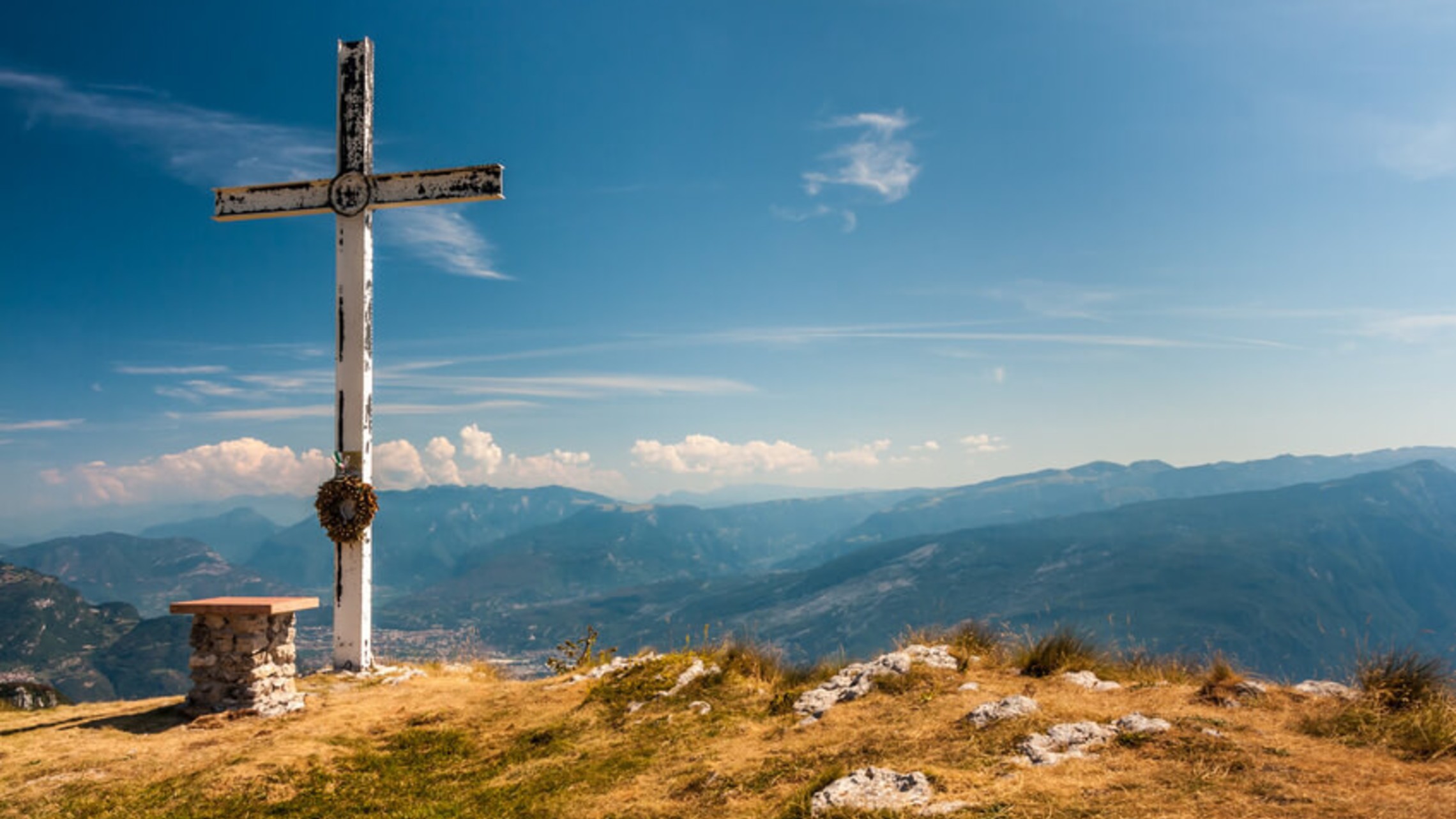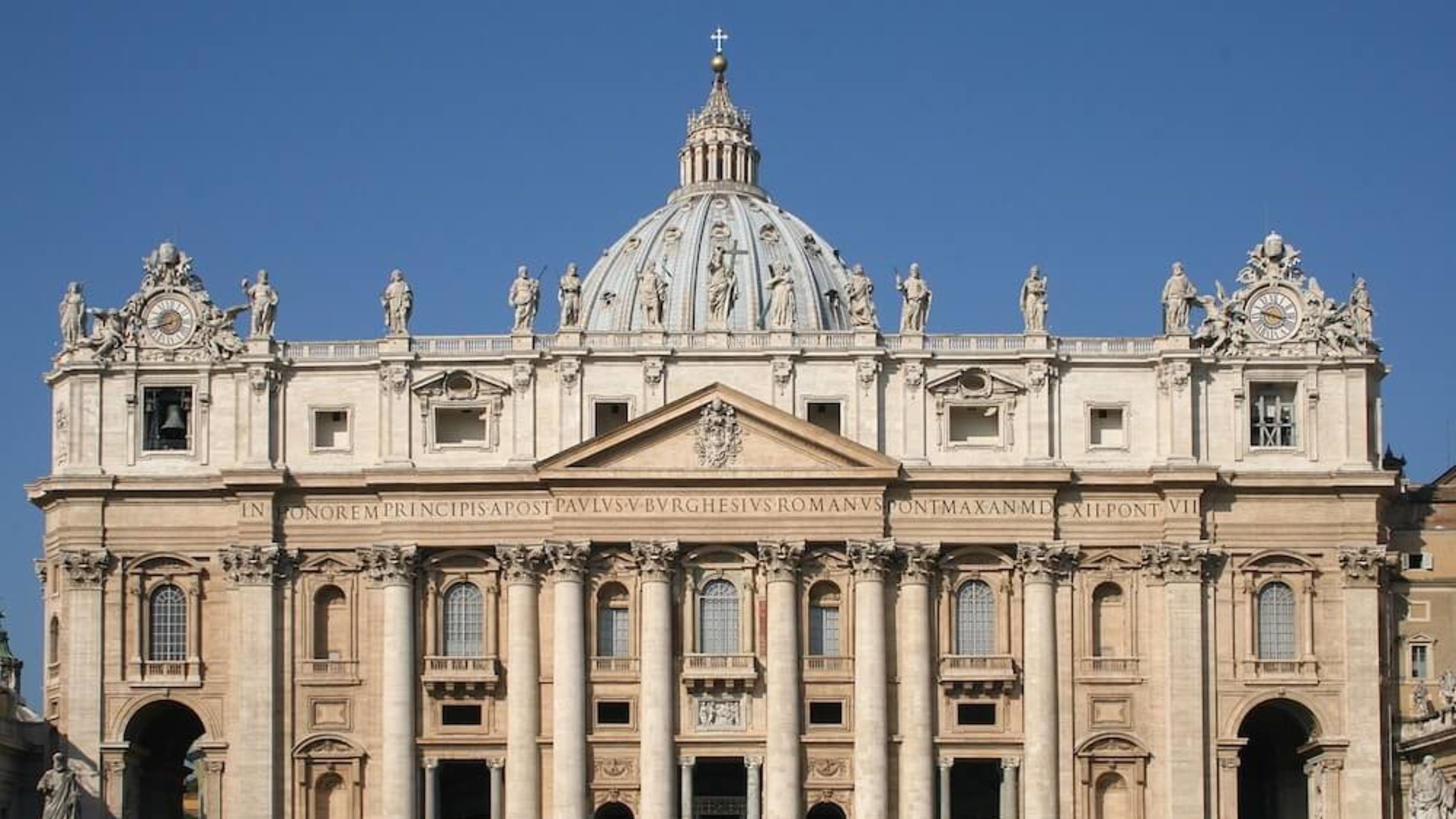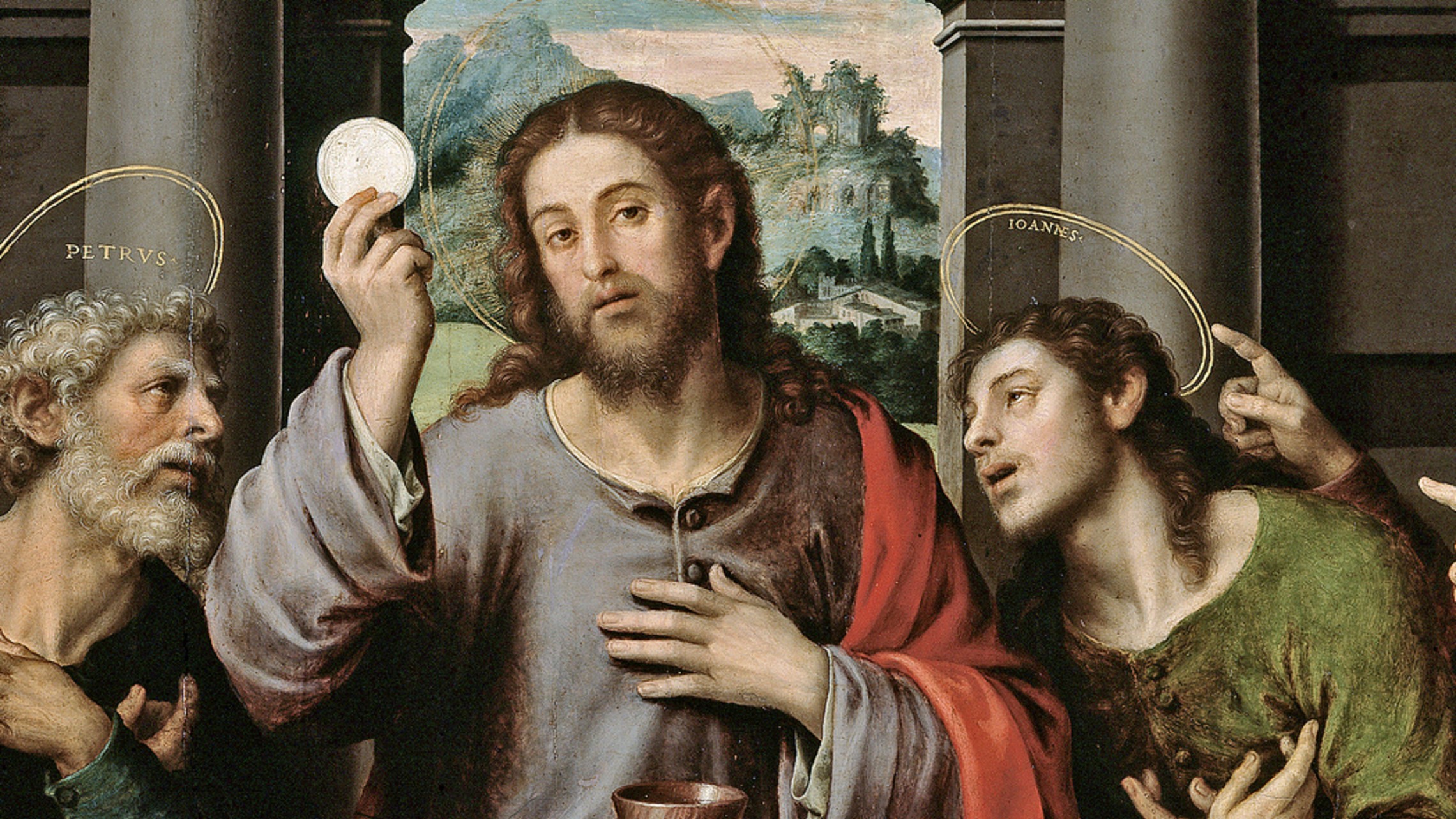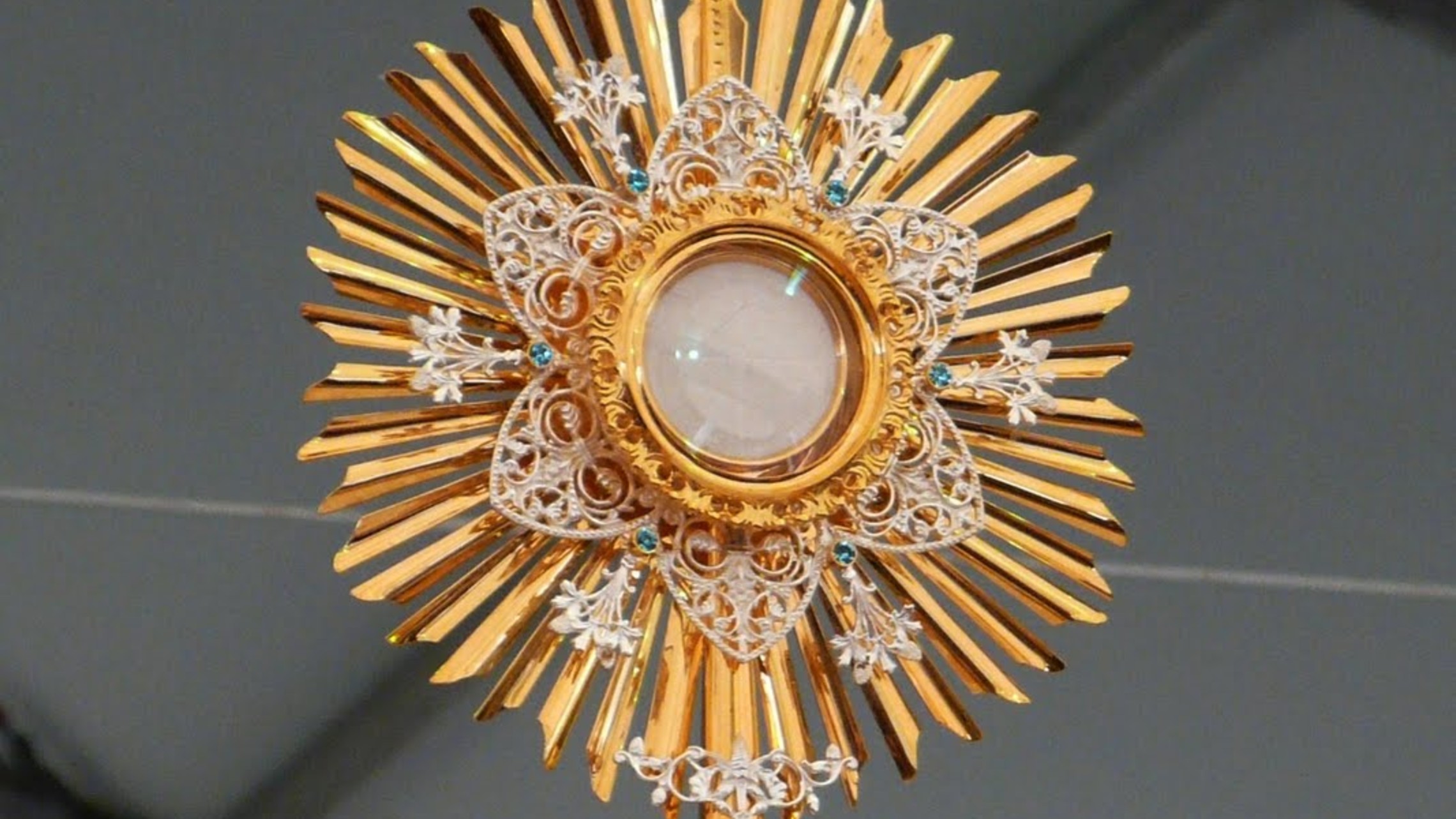Seasonal Resources
Any book which inspires us to lead a better life is a good book.
– Blessed Fulton Sheen
2024 National Eucharistic Congress Playlist
Featured Podcasts
Daily Readings
- Readings for the Memorial of Saint Cecilia, Virgin and Martyr
As King Antiochus was traversing the inland provinces,
he heard that in Persia there was a city called Elymais,
famous for its wealth in silver and gold,
and that its temple was very rich,
containing gold helmets, breastplates, and weapons
left there by Alexander, son of Philip,
king of Macedon, the first king of the Greeks.
He went therefore and tried to capture and pillage the city.
But he could not do so,
because his plan became known to the people of the city
who rose up in battle against him.
So he retreated and in great dismay withdrew from there
to return to Babylon.
While he was in Persia, a messenger brought him news
that the armies sent into the land of Judah had been put to flight;
that Lysias had gone at first with a strong army
and been driven back by the children of Israel;
that they had grown strong
by reason of the arms, men, and abundant possessions
taken from the armies they had destroyed;
that they had pulled down the Abomination
which he had built upon the altar in Jerusalem;
and that they had surrounded with high walls
both the sanctuary, as it had been before,
and his city of Beth-zur.
When the king heard this news,
he was struck with fear and very much shaken.
Sick with grief because his designs had failed, he took to his bed.
There he remained many days, overwhelmed with sorrow,
for he knew he was going to die.
So he called in all his Friends and said to them:
"Sleep has departed from my eyes,
for my heart is sinking with anxiety.
I said to myself: 'Into what tribulation have I come,
and in what floods of sorrow am I now!
Yet I was kindly and beloved in my rule.'
But I now recall the evils I did in Jerusalem,
when I carried away all the vessels of gold and silver
that were in it, and for no cause
gave orders that the inhabitants of Judah be destroyed.
I know that this is why these evils have overtaken me;
and now I am dying, in bitter grief, in a foreign land."
R. (see 16a) I will rejoice in your salvation, O Lord.
I will give thanks to you, O LORD, with all my heart;
I will declare all your wondrous deeds.
I will be glad and exult in you;
I will sing praise to your name, Most High.
R. I will rejoice in your salvation, O Lord.
Because my enemies are turned back,
overthrown and destroyed before you.
You rebuked the nations and destroyed the wicked;
their name you blotted out forever and ever.
R. I will rejoice in your salvation, O Lord.
The nations are sunk in the pit they have made;
in the snare they set, their foot is caught.
For the needy shall not always be forgotten,
nor shall the hope of the afflicted forever perish.
R. I will rejoice in your salvation, O Lord.
R. Alleluia, alleluia.
Our Savior Jesus Christ has destroyed death
and brought life to light through the Gospel.
R. Alleluia, alleluia.
Some Sadducees, those who deny that there is a resurrection,
came forward and put this question to Jesus, saying,
"Teacher, Moses wrote for us,
If someone's brother dies leaving a wife but no child,
his brother must take the wife
and raise up descendants for his brother.
Now there were seven brothers;
the first married a woman but died childless.
Then the second and the third married her,
and likewise all the seven died childless.
Finally the woman also died.
Now at the resurrection whose wife will that woman be?
For all seven had been married to her."
Jesus said to them,
"The children of this age marry and remarry;
but those who are deemed worthy to attain to the coming age
and to the resurrection of the dead
neither marry nor are given in marriage.
They can no longer die,
for they are like angels;
and they are the children of God
because they are the ones who will rise.
That the dead will rise
even Moses made known in the passage about the bush,
when he called 'Lord'
the God of Abraham, the God of Isaac, and the God of Jacob;
and he is not God of the dead, but of the living,
for to him all are alive."
Some of the scribes said in reply,
"Teacher, you have answered well."
And they no longer dared to ask him anything.
Lectionary for Mass for Use in the Dioceses of the United States, second typical edition, Copyright © 2001, 1998, 1997, 1986, 1970 Confraternity of Christian Doctrine; Psalm refrain © 1968, 1981, 1997, International Committee on English in the Liturgy, Inc. All rights reserved. Neither this work nor any part of it may be reproduced, distributed, performed or displayed in any medium, including electronic or digital, without permission in writing from the copyright owner.
- Readings for the Memorial of the Presentation of the Virgin Mary
Judas and his brothers said,
“Now that our enemies have been crushed,
let us go up to purify the sanctuary and rededicate it.”
So the whole army assembled, and went up to Mount Zion.
Early in the morning on the twenty-fifth day of the ninth month,
that is, the month of Chislev,
in the year one hundred and forty-eight,
they arose and offered sacrifice according to the law
on the new altar of burnt offerings that they had made.
On the anniversary of the day on which the Gentiles had defiled it,
on that very day it was reconsecrated
with songs, harps, flutes, and cymbals.
All the people prostrated themselves and adored and praised Heaven,
who had given them success.
For eight days they celebrated the dedication of the altar
and joyfully offered burnt offerings and sacrifices
of deliverance and praise.
They ornamented the facade of the temple with gold crowns and shields;
they repaired the gates and the priests’ chambers
and furnished them with doors.
There was great joy among the people
now that the disgrace of the Gentiles was removed.
Then Judas and his brothers and the entire congregation of Israel
decreed that the days of the dedication of the altar
should be observed with joy and gladness
on the anniversary every year for eight days,
from the twenty-fifth day of the month Chislev.
R. (13b) We praise your glorious name, O mighty God.
“Blessed may you be, O LORD,
God of Israel our father,
from eternity to eternity.”
R. We praise your glorious name, O mighty God.
“Yours, O LORD, are grandeur and power,
majesty, splendor, and glory.
For all in heaven and on earth is yours.”
R. We praise your glorious name, O mighty God.
“Yours, O LORD, is the sovereignty;
you are exalted as head over all.
Riches and honor are from you.”
R. We praise your glorious name, O mighty God.
“You have dominion over all,
In your hand are power and might;
it is yours to give grandeur and strength to all.”
R. We praise your glorious name, O mighty God.
R. Alleluia, alleluia.
My sheep hear my voice, says the Lord;
I know them, and they follow me.
R. Alleluia, alleluia.
Jesus entered the temple area and proceeded to drive out
those who were selling things, saying to them,
“It is written, My house shall be a house of prayer,
but you have made it a den of thieves.”
And every day he was teaching in the temple area.
The chief priests, the scribes, and the leaders of the people, meanwhile,
were seeking to put him to death,
but they could find no way to accomplish their purpose
because all the people were hanging on his words.
Lectionary for Mass for Use in the Dioceses of the United States, second typical edition, Copyright © 2001, 1998, 1997, 1986, 1970 Confraternity of Christian Doctrine; Psalm refrain © 1968, 1981, 1997, International Committee on English in the Liturgy, Inc. All rights reserved. Neither this work nor any part of it may be reproduced, distributed, performed or displayed in any medium, including electronic or digital, without permission in writing from the copyright owner.
The officers of the king in charge of enforcing the apostasy
came to the city of Modein to organize the sacrifices.
Many of Israel joined them,
but Mattathias and his sons gathered in a group apart.
Then the officers of the king addressed Mattathias:
“You are a leader, an honorable and great man in this city,
supported by sons and kin.
Come now, be the first to obey the king’s command,
as all the Gentiles and the men of Judah
and those who are left in Jerusalem have done.
Then you and your sons shall be numbered among the King’s Friends,
and shall be enriched with silver and gold and many gifts.”
But Mattathias answered in a loud voice:
“Although all the Gentiles in the king’s realm obey him,
so that each forsakes the religion of his fathers
and consents to the king’s orders,
yet I and my sons and my kin
will keep to the covenant of our fathers.
God forbid that we should forsake the law and the commandments.
We will not obey the words of the king
nor depart from our religion in the slightest degree.”
As he finished saying these words,
a certain Jew came forward in the sight of all
to offer sacrifice on the altar in Modein
according to the king’s order.
When Mattathias saw him, he was filled with zeal;
his heart was moved and his just fury was aroused;
he sprang forward and killed him upon the altar.
At the same time, he also killed the messenger of the king
who was forcing them to sacrifice,
and he tore down the altar.
Thus he showed his zeal for the law,
just as Phinehas did with Zimri, son of Salu.
Then Mattathias went through the city shouting,
“Let everyone who is zealous for the law
and who stands by the covenant follow after me!”
Thereupon he fled to the mountains with his sons,
leaving behind in the city all their possessions.
Many who sought to live according to righteousness and religious custom
went out into the desert to settle there.
R. (23b) To the upright I will show the saving power of God.
God the LORD has spoken and summoned the earth,
from the rising of the sun to its setting.
From Zion, perfect in beauty,
God shines forth.
R. To the upright I will show the saving power of God.
“Gather my faithful ones before me,
those who have made a covenant with me by sacrifice.”
And the heavens proclaim his justice;
for God himself is the judge.
R. To the upright I will show the saving power of God.
“Offer to God praise as your sacrifice
and fulfill your vows to the Most High;
Then call upon me in time of distress;
I will rescue you, and you shall glorify me.”
R. To the upright I will show the saving power of God.
R. Alleluia, alleluia.
If today you hear his voice,
harden not your hearts.
R. Alleluia, alleluia.
As Jesus drew near Jerusalem,
he saw the city and wept over it, saying,
“If this day you only knew what makes for peace–
but now it is hidden from your eyes.
For the days are coming upon you
when your enemies will raise a palisade against you;
they will encircle you and hem you in on all sides.
They will smash you to the ground and your children within you,
and they will not leave one stone upon another within you
because you did not recognize the time of your visitation.”
Lectionary for Mass for Use in the Dioceses of the United States, second typical edition, Copyright © 2001, 1998, 1997, 1986, 1970 Confraternity of Christian Doctrine; Psalm refrain © 1968, 1981, 1997, International Committee on English in the Liturgy, Inc. All rights reserved. Neither this work nor any part of it may be reproduced, distributed, performed or displayed in any medium, including electronic or digital, without permission in writing from the copyright owner.
It happened that seven brothers with their mother were arrested
and tortured with whips and scourges by the king,
to force them to eat pork in violation of God's law.
Most admirable and worthy of everlasting remembrance was the mother,
who saw her seven sons perish in a single day,
yet bore it courageously because of her hope in the Lord.
Filled with a noble spirit that stirred her womanly heart with manly courage,
she exhorted each of them
in the language of their ancestors with these words:
"I do not know how you came into existence in my womb;
it was not I who gave you the breath of life,
nor was it I who set in order
the elements of which each of you is composed.
Therefore, since it is the Creator of the universe
who shapes each man's beginning,
as he brings about the origin of everything,
he, in his mercy,
will give you back both breath and life,
because you now disregard yourselves for the sake of his law."
Antiochus, suspecting insult in her words,
thought he was being ridiculed.
As the youngest brother was still alive, the king appealed to him,
not with mere words, but with promises on oath,
to make him rich and happy if he would abandon his ancestral customs:
he would make him his Friend
and entrust him with high office.
When the youth paid no attention to him at all,
the king appealed to the mother,
urging her to advise her boy to save his life.
After he had urged her for a long time,
she went through the motions of persuading her son.
In derision of the cruel tyrant,
she leaned over close to her son and said in their native language:
"Son, have pity on me, who carried you in my womb for nine months,
nursed you for three years, brought you up,
educated and supported you to your present age.
I beg you, child, to look at the heavens and the earth
and see all that is in them;
then you will know that God did not make them out of existing things;
and in the same way the human race came into existence.
Do not be afraid of this executioner,
but be worthy of your brothers and accept death,
so that in the time of mercy I may receive you again with them."
She had scarcely finished speaking when the youth said:
"What are you waiting for?
I will not obey the king's command.
I obey the command of the law given to our fathers through Moses.
But you, who have contrived every kind of affliction for the Hebrews,
will not escape the hands of God."
R.(15b) Lord, when your glory appears, my joy will be full.
Hear, O LORD, a just suit;
attend to my outcry;
hearken to my prayer from lips without deceit.
R. Lord, when your glory appears, my joy will be full.
My steps have been steadfast in your paths,
my feet have not faltered.
I call upon you, for you will answer me, O God;
incline your ear to me; hear my word.
R. Lord, when your glory appears, my joy will be full.
Keep me as the apple of your eye;
hide me in the shadow of your wings.
But I in justice shall behold your face;
on waking, I shall be content in your presence.
R. Lord, when your glory appears, my joy will be full.
R. Alleluia, alleluia.
I chose you from the world,
to go and bear fruit that will last, says the Lord.
R. Alleluia, alleluia.
While people were listening to Jesus speak,
he proceeded to tell a parable because he was near Jerusalem
and they thought that the Kingdom of God
would appear there immediately.
So he said,
"A nobleman went off to a distant country
to obtain the kingship for himself and then to return.
He called ten of his servants and gave them ten gold coins
and told them, 'Engage in trade with these until I return.'
His fellow citizens, however, despised him
and sent a delegation after him to announce,
'We do not want this man to be our king.'
But when he returned after obtaining the kingship,
he had the servants called, to whom he had given the money,
to learn what they had gained by trading.
The first came forward and said,
'Sir, your gold coin has earned ten additional ones.'
He replied, 'Well done, good servant!
You have been faithful in this very small matter;
take charge of ten cities.'
Then the second came and reported,
'Your gold coin, sir, has earned five more.'
And to this servant too he said,
'You, take charge of five cities.'
Then the other servant came and said,
'Sir, here is your gold coin;
I kept it stored away in a handkerchief,
for I was afraid of you, because you are a demanding man;
you take up what you did not lay down
and you harvest what you did not plant.'
He said to him,
'With your own words I shall condemn you,
you wicked servant.
You knew I was a demanding man,
taking up what I did not lay down
and harvesting what I did not plant;
why did you not put my money in a bank?
Then on my return I would have collected it with interest.'
And to those standing by he said,
'Take the gold coin from him
and give it to the servant who has ten.'
But they said to him,
'Sir, he has ten gold coins.'
He replied, 'I tell you,
to everyone who has, more will be given,
but from the one who has not,
even what he has will be taken away.
Now as for those enemies of mine who did not want me as their king,
bring them here and slay them before me.'"
After he had said this,
he proceeded on his journey up to Jerusalem.
Lectionary for Mass for Use in the Dioceses of the United States, second typical edition, Copyright © 2001, 1998, 1997, 1986, 1970 Confraternity of Christian Doctrine; Psalm refrain © 1968, 1981, 1997, International Committee on English in the Liturgy, Inc. All rights reserved. Neither this work nor any part of it may be reproduced, distributed, performed or displayed in any medium, including electronic or digital, without permission in writing from the copyright owner.
Eleazar, one of the foremost scribes,
a man of advanced age and noble appearance,
was being forced to open his mouth to eat pork.
But preferring a glorious death to a life of defilement,
he spat out the meat,
and went forward of his own accord to the instrument of torture,
as people ought to do who have the courage to reject the food
which it is unlawful to taste even for love of life.
Those in charge of that unlawful ritual meal took the man aside privately,
because of their long acquaintance with him,
and urged him to bring meat of his own providing,
such as he could legitimately eat,
and to pretend to be eating some of the meat of the sacrifice
prescribed by the king;
in this way he would escape the death penalty,
and be treated kindly because of their old friendship with him.
But Eleazar made up his mind in a noble manner,
worthy of his years, the dignity of his advanced age,
the merited distinction of his gray hair,
and of the admirable life he had lived from childhood;
and so he declared that above all
he would be loyal to the holy laws given by God.
He told them to send him at once
to the abode of the dead, explaining:
“At our age it would be unbecoming to make such a pretense;
many young people would think the ninety-year-old Eleazar
had gone over to an alien religion.
Should I thus pretend for the sake of a brief moment of life,
they would be led astray by me,
while I would bring shame and dishonor on my old age.
Even if, for the time being, I avoid the punishment of men,
I shall never, whether alive or dead,
escape the hands of the Almighty.
Therefore, by manfully giving up my life now,
I will prove myself worthy of my old age,
and I will leave to the young a noble example
of how to die willingly and generously
for the revered and holy laws.”
Eleazar spoke thus,
and went immediately to the instrument of torture.
Those who shortly before had been kindly disposed,
now became hostile toward him because what he had said
seemed to them utter madness.
When he was about to die under the blows,
he groaned and said:
“The Lord in his holy knowledge knows full well that,
although I could have escaped death,
I am not only enduring terrible pain in my body from this scourging,
but also suffering it with joy in my soul
because of my devotion to him.”
This is how he died,
leaving in his death a model of courage
and an unforgettable example of virtue
not only for the young but for the whole nation.
R. (6b) The Lord upholds me.
O LORD, how many are my adversaries!
Many rise up against me!
Many are saying of me,
“There is no salvation for him in God.”
R. The Lord upholds me.
But you, O LORD, are my shield;
my glory, you lift up my head!
When I call out to the LORD,
he answers me from his holy mountain.
R. The Lord upholds me.
When I lie down in sleep,
I wake again, for the LORD sustains me.
I fear not the myriads of people
arrayed against me on every side.
R. The Lord upholds me.
R. Alleluia, alleluia.
God loved us, and sent his Son
as expiation for our sins.
R. Alleluia, alleluia.
At that time Jesus came to Jericho and intended to pass through the town.
Now a man there named Zacchaeus,
who was a chief tax collector and also a wealthy man,
was seeking to see who Jesus was;
but he could not see him because of the crowd,
for he was short in stature.
So he ran ahead and climbed a sycamore tree in order to see Jesus,
who was about to pass that way.
When he reached the place, Jesus looked up and said,
“Zacchaeus, come down quickly,
for today I must stay at your house.”
And he came down quickly and received him with joy.
When they saw this, they began to grumble, saying,
“He has gone to stay at the house of a sinner.”
But Zacchaeus stood there and said to the Lord,
“Behold, half of my possessions, Lord, I shall give to the poor,
and if I have extorted anything from anyone
I shall repay it four times over.”
And Jesus said to him,
“Today salvation has come to this house
because this man too is a descendant of Abraham.
For the Son of Man has come to seek
and to save what was lost.”
- Readings for the Optional Memorial of Dedication of the Basilicas of Saints Peter and Paul, Apostles
- Readings for the Optional Memorial of Saint Rose Philippine Duchesne, Virgin [In the Dioceses of the United States]
Lectionary for Mass for Use in the Dioceses of the United States, second typical edition, Copyright © 2001, 1998, 1997, 1986, 1970 Confraternity of Christian Doctrine; Psalm refrain © 1968, 1981, 1997, International Committee on English in the Liturgy, Inc. All rights reserved. Neither this work nor any part of it may be reproduced, distributed, performed or displayed in any medium, including electronic or digital, without permission in writing from the copyright owner.
Saint of the Day
 St. Oswald
St. Oswald
Feast date: Feb 29
St. Oswald was a king of Northumbria from 634 until his death and is venerated as a saint.
Oswald spread the Christian faith throughout Northumbria. He had a cult following, and was generous with the poor.
There are many legends surrounding his reign.
 St. Joan of Arc
St. Joan of Arc
Feast date: May 30
Today is the feast of St. Joan of Arc, the patroness of France. Joan was born to a peasant family in Champagne, France in the early 15th century.
From a young age she heard the voices of St. Michael, St. Catherine, and St. Margaret speaking to her. Then, in 1428, when she was 13 years old, she received a vision telling her to go to the King of France and help him reconquer his kingdom from the invading forces of England and Burgundy.
Overcoming opposition and convincing members of the court and of the Church, she was given a small army. She charged into battle bearing a banner which bore the names “Jesus” and “Mary” as well as a symbol of the Holy Spirit.
Due to her leadership and trust in God, she was able to raise the siege of Orleans in 1429. Joan and her army went on to win a series of battles. Because of her efforts, the king was able to enter Rheims. He was crowned with Joan at his side.
Eventually, Joan was captured by the forces of Burgundy in May of 1430. When her own king and army did nothing to save her, she was sold to the English. She was imprisoned for a time and then put on trial. Bishop Peter Cauchon of Beauvais presided over her trial. His hope was that in being harsh with Joan, the English would help him become archbishop.
Joan was condemned to death on counts of heresy, witchcraft, and adultery. On May 30, 1431, she was burned at the stake in Rouen, France. She was 19 years old.
Thirty years after her death, her case was retried and she was exonerated. In 1920, she was canonized by Pope Benedict XV. She is the patroness of France, captives, soldiers, and those ridiculed for their piety.
 St. Gianna Beretta Molla
St. Gianna Beretta Molla
Feast date: Apr 28
Gianna Beretta Molla was born on October 4, 1922 in Magenta, Italy. She was the tenth of 13 children in her family. She grew up in a devout Catholic home and quickly learned the value of prayer. As a young adult, she joined the Society of Saint Vincent de Paul.
Gianna began to study medicine during World War II. In 1950 she opened her own medical office in Mesero, which was near her hometown. A couple years later she began to specialize in pediatrics and was drawn towards mothers, babies, the elderly, and the poor.
In 1954 Gianna met Pietro Molla, an engineer who worked in her office. In September of 1955 the two became husband and wife. Between 1956 and 1959 the couple had three children, Pierluigi, Maria Zita and Laura.
Gianna embraced the vocation of being a wife and mother with all her being and completely dedicated herself to "forming a truly Christian family."
In 1961, Gianna became pregnant with their fourth child. It was during this pregnancy that doctors discovered that Gianna had developed a uterine tumor.
The doctors gave her three choices: an abortion, which would save her life and allow her to have more children but take the life of her baby; a complete hysterectomy, which would save her life but prevent her from having more children and take her baby’s life; or removal of the fibroma only, which posed the risk of future complications but could save the life of her baby.
Gianna chose to have only the tumor removed. She was willing to lose her life for the sake of her baby’s. She knew that she may not make it through delivery, but she made it very clear that if a choice needed to be made between saving her own life or the child’s, the child needed to be saved.
Throughout her pregnancy, Gianna found strength in the Lord and asked him to take any pain away from the child.
On April 21, 1962 Gianna Emmanuel Molla was successfully delivered by Cesarean section. However, after complications arose with the tumor, Gianna passed away 7 days later on April 28.
Gianna was beatified by Saint Pope John Paul II on April 24, 1994 and canonized as a saint on May 16, 2004. Her husband and children attended her canonization.
During her canonization, Saint Pope John Paul II said, “Shortly before her wedding, in a letter to her future husband, she wrote: "Love is the most beautiful sentiment that the Lord has placed in the spirit of men.”
“Following the example of Christ, who ‘having loved his own ... he loved them to the end’ (John 13:1) this holy mother of a family was heroically faithful to the commitment she took on the day of her marriage. The supreme sacrifice that sealed her life testifies that only the one who has the courage to give himself totally to God and to neighbor finds fulfillment,” he added.
The pope described her as, "a simple, but more than ever, significant messenger of divine love."
St. Gianna Beretta Molla is the patron saint of mothers, physicians, and unborn children.
 St. Robert Southwell
St. Robert Southwell
Feast date: Feb 21
Saint Robert Southwell, SJ (c. 1561 – February 21 1595,) an English Roman Catholic Jesuit priest, is one of the 40 martyrs of England & Wales murdered during the English anti-Catholic Reformation.
Robert was born in Norfolk, the youngest of eight children in a well-to-do family with Catholic sympathies in the midts of the anti-Catholic sentiment started by the Anglican reformation.
In 1576, he was sent to France to study with the Jesuits at the English college at Douai. After completing his education, he requested to join the Society of Jesus, but was rejected because he was too young and the Jesuit seminary was temporarily closed because of the growing confrontations between French and Spanish forces.
But in a show of his conviction, in 1578, set off on foot to Rome to make his case for becoming a Jesuit.
After being admitted to the probation house of Sant' Andrea on 17 October 1578, and after the completion of the novitiate, Southwell began studies in philosophy and theology at the Jesuit College in Rome, and was ordained in 1584.That same year, Queen Elizabeth had passed an edict establishing the death penalty for any British Catholic priest or religious who joined a religious order abroad to remain in England longer than forty days.
Two years later, Southwell requested to be sent back to England as a clandestine Jesuit missionary with Henry Garnet.
Southwell preached and ministered successfully for six years, publishing Catholic catechism and writing spiritual poetry that would make him one of the most important Barroque English poets.
But the Queen's cheif priest-hunter, Richard Topcliffe, pressured a young Catholic woman he had raped to betray Southwell. Once captured, he was initially jailed in Topcliffe's personal prison and tortured 13 different times, trying to get him to name Catholic families involved in the clandestine Catholic mission. Fr. Robert did not betray a single name.
Transferred to the infamous Tower of London, Southwell endured cold and solitude for two and a half years, reading the Bible, the works of St. Bernard and praying the Breviary. During that time he also wrote the most important portion of his poetry.
In 1595, Southwell was finally put on trial accused of treason. During the trial, he admitted being a Jesuit to minister to Catholics, but strongly denied ever being involved in “designs or plots against the queen or kingdom."
After the predictable guilty verdict, he was sentenced to be hanged, drawn and quartered.
On 21 February 1595, in Tyburn, the Jesuit was allowed to address the crowd about his mission as a Catholic priest, then pronounced the words of Psalm 30 prayed in Complines: in manus tuas commendabo spiritum meum (Into your hands i commend my spirit) and made the sign of the cross.
After he was hanged and his severed head presented to the crowd, the traditional shout of “traitor” was replaced by utter silence.
Soon after his martyrdom, his body of poetry started to circulate in manuscripts among Catholics, and later in 1595 his “St Peter's Complaint” and other poems were printed. By 1636, 14 editions had been printed, and other collections of poems, including “Mary Magdalen's Funeral Tears” and Maeoniae.
Southwell was canonized in 1970 as one of the Forty Martyrs of England and Wales.
Many critics believe that the poem that expresses the best of his dramatic message to his fellow persecuted Catholics in England is “Life is But Losse,” which he wrote in prison:
By force I live, in will I wish to dye;
In playnte I passe the length of lingring dayes;
Free would my soule from mortall body flye,
And tredd the track of death's desyred waies:
Life is but losse where death is deemed gaine,
And loathed pleasures breed displeasinge payne.
.....
Come, cruell death, why lingrest thou so longe?
What doth withould thy dynte from fatall stroke?
Nowe prest I am, alas! thou dost me wronge,
To lett me live, more anger to provoke:
Thy right is had when thou hast stopt my breathe,
Why shouldst thoue stay to worke my dooble deathe?
.....
Avaunt, O viper! I thy spite defye:
There is a God that overrules thy force,
Who can thy weapons to His will applie,
And shorten or prolonge our brittle course.
I on His mercy, not thy might, relye;
To Him I live, for Him I hope to die.
 Blessed Santiago Alberione
Blessed Santiago Alberione
Feast date: Nov 26
Santiago Alberione was born on April 4, 1884, the fourth of six children in a devout working class family in San Lorenzo di Fossano, Cuneo, Italy. From a young age, he felt God calling him, and on his first school when the teacher asked him what he wanted to be when he grew up, he responded, “I want to be a priest.”This desire of his came true when he entered the seminary in Alba. During the night of December 31 1900 to January 1 1901 while still in the seminary, he prayed for four hours in front of the Blessed Sacrament. He saw a light shine forth from the Host, and from that moment he had an unusually powerful certainty that God was calling him to do something for the people of the new century.
He was ordained on June 29, 1907 and was assigned to a parish in Narzole. He served as spiritual director for youth and altar servers in the Alba seminary beginning October 1, 1908 and in September of 1913 he became director of the weekly publication Gazzetta d'Alba.
He founded the Society of Saint Paul on August 20, 1914, the Daughters of Saint Paul on June 15, 1915, the Sisters Disciples of the Divine Master on February 10, 1924 and the Sisters of Jesus Good Shepherd in Rome in August 1936. These congregations, under his leadership and still today, publish books and other materials for spreading of the word of God, thus fulfilling his intense conviction at the turn of the century of helping the people of the 20th century of Christianity.
During the course of his priestly and parochial ministry, he grew in the certainty that his call was to reach out to as many people as possible using new technology and media. To this end, he founded the Pauline family. The family grew as there was an increase in both mens and womens vocations, and the apostolate began to take shape rapidly. He founded various women's orders whose charisms were the publication and dissemination of books, and ministry to Pastors, among other things.
Alberione's work can best be summed up in the words of Pope Paul VI, who never held back his admiration for the Pauline ministry. “Father Alberione has given the Church new instruments with which to express herself, new means with which to invigorate herself and to amplify her apostolate, new capacity, and a new consciousness of the validity and the possibility of her mission in the modern world with modern means.
He died on November 26, 1971 in Rome, and was beatified by Pope John Paul II on April 27, 2003.
Explore Your Faith - Online Learning Sources
St. Margaret of York has gifted our parishioners with unlimited access to the best eBooks, talks, and videos in the Church today.
Sign In / Sign Up for Formed:
Use Formed via:
Catholic Answers at Catholic.com provides a free powerhouse of articles, audio, and video on various topics of the Faith.
Featuring the acclaimed work of Bishop Robert Barron, WordonFire.org is an excellent source of online videos, study programs, DVDs, books, lectures, CDs, and articles.
The Understanding the Scriptures Podcast provides a 100% free Bible study that takes you through the entire Bible from Genesis to Revelation. You can listen on your smartphone while driving!
Want to learn more or get involved but not sure where to start? Let us help.
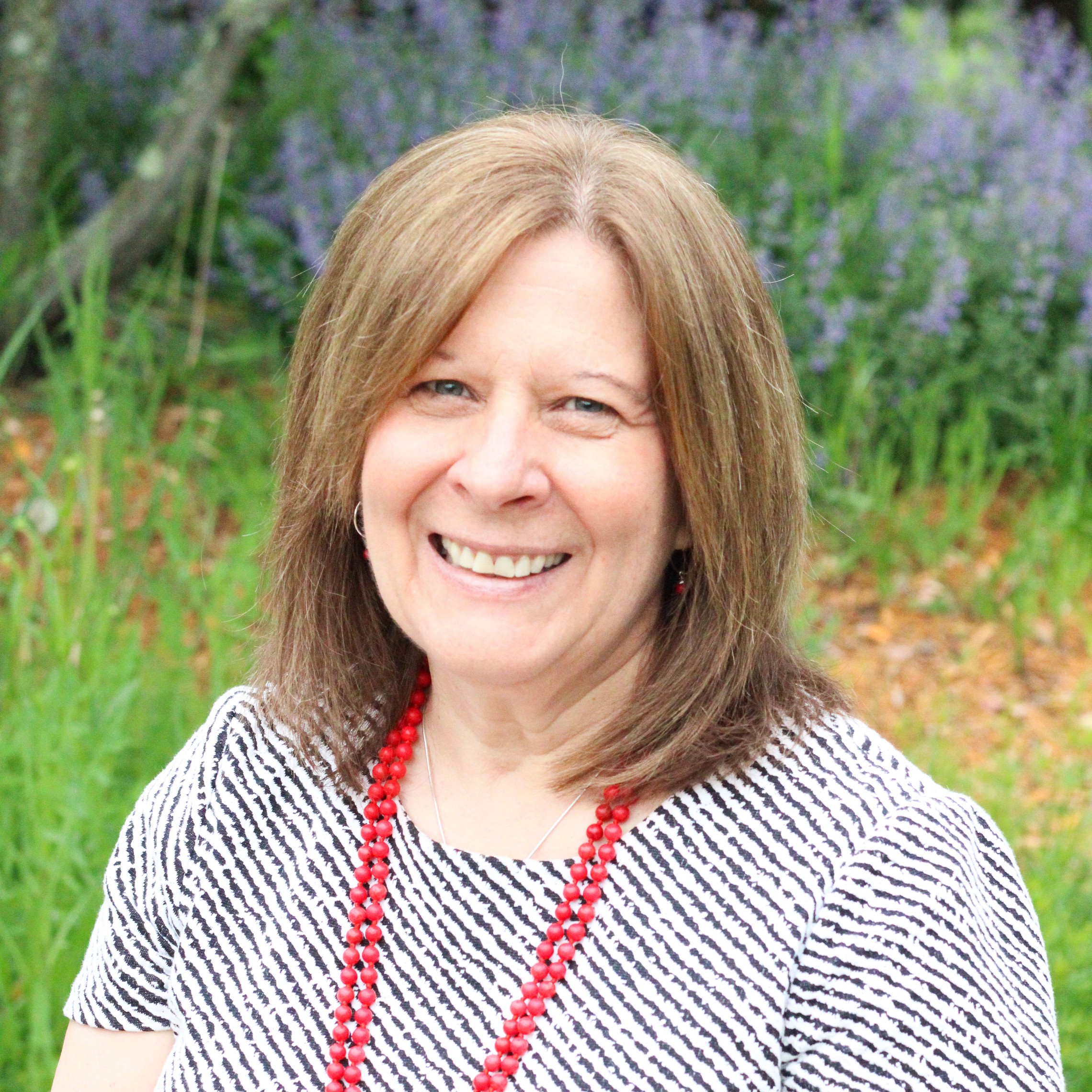
Birgitt Hacker
Birgitt Hacker is the Pastoral Associate for Adult Faith Formation at SMOY. Birgitt manages our Bible studies, RCIA, parish mission, and speaking events at SMOY. She is a graduate of UC with an MBA and undergraduate degrees in Operation Management and German. She is working on her Masters of Theology at MTSM. In her free time, Birgitt enjoys gardening, cooking, and reading.
Spotify Playlists
Uplifting music for our journey of faith.
(You'll need a free Spotify account to listen)





